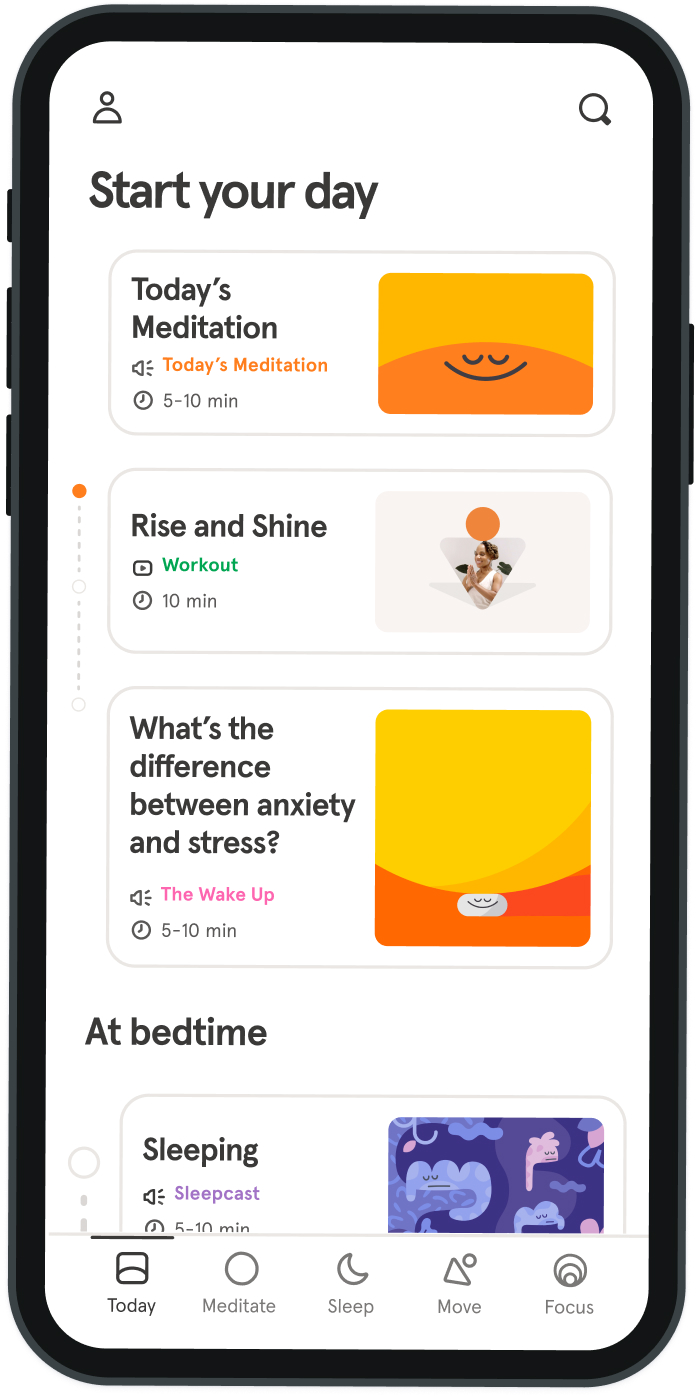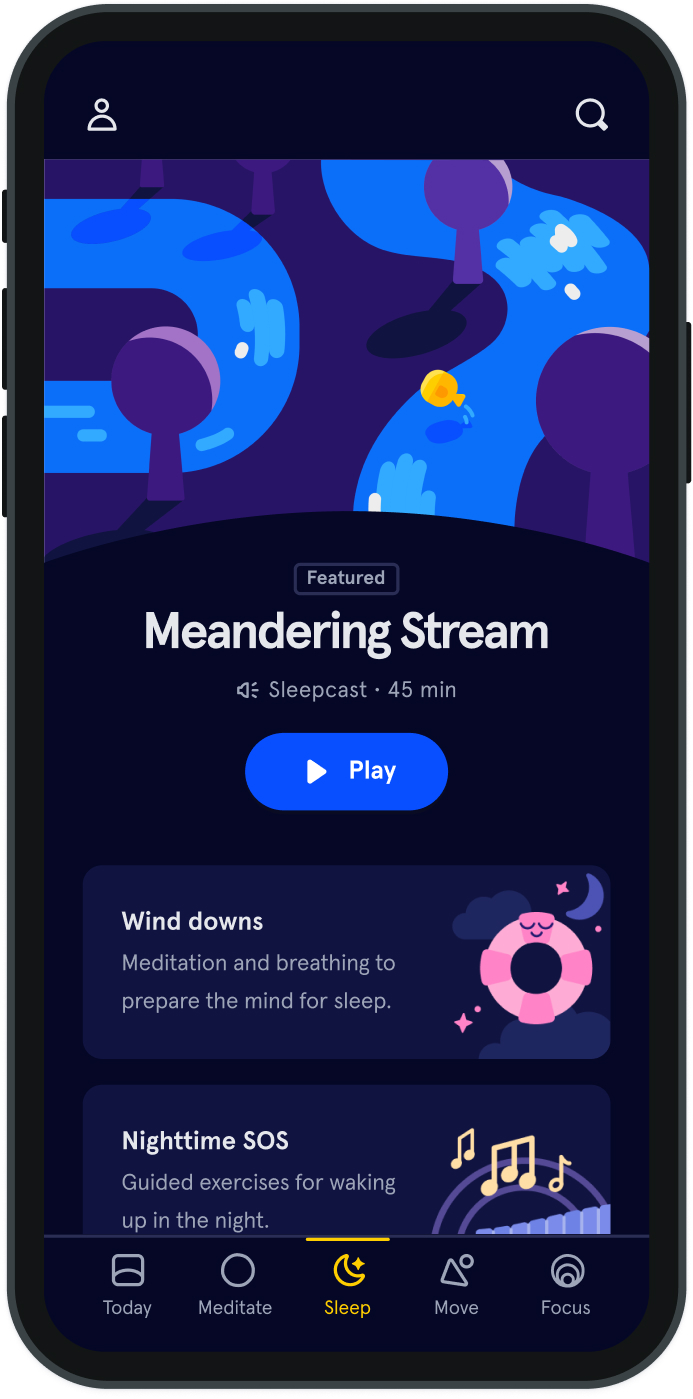Is insomnia curable?
“The best cure for insomnia is to get a lot of sleep.”- W.C. Fields. How annoying is that quote?
If you’re reading this with bleary eyes, holding your head up, or (gasp!) on your phone in bed while searching “Is insomnia curable?” in the middle of the night, I feel for you. And, you’ve probably heard some rendition of Fields’ quote from a well-intentioned loved one when unable to sleep. Anyone who’s experienced a sleepless night can empathize with those who encounter a sleep disorder often. The definition of insomnia is “habitual sleeplessness; inability to sleep,” but how many nights of losing sleep qualifies as “habitual”? Does an inability to sleep mean you can’t fall asleep, stay asleep, or wake up earlier than preferred? “There are more than 85 recognized sleep disorders, the most recognizable of which may be insomnia, sleep apnea, narcolepsy, and restless leg syndrome,” says Michael J. Breus, Ph.D., a California-based board-certified sleep specialist, and author of “The Power of When.”
“Anxiety plays a tremendous role in insomnia,” he says. “The more anxious a person is, the worse they are going to sleep. When you give people ways to control that level of anxiety, insomnia will get better.”
What is insomnia?
“I don't view [insomnia] as a disease or a disorder,” says regular meditator Jose Colon, M.D., M.P.H., author of “The Sleep Diet, A Novel Approach to Insomnia” and creator of Paradise Sleep. “I view it as a symptom. Sleep medications may make you comfortable, but you're not getting to the underlying [problem].” There are different types of insomnia, says Breus. Insomnia can be associated with pain, anxiety, depression, medications, or other medical disorders. “People [should] figure out, ‘What have I got?’ and if they have more than one kind of insomnia. That can direct you down a path that makes it easier to seek a [resolution],” says Breus. “I define insomnia with a rule of three. If it takes longer than 30 minutes to fall asleep, or you wake up and can’t go back to sleep for longer than 30 minutes, and this happens to you more than three times a week for three weeks at a time or longer, you have insomnia,” Breus says.
What causes insomnia?
Insomnia can be caused by many things; psychological issues like anxiety and racing thoughts, or physiological issues like untreated sleep disorders, sleep apnea, and even genetics. Insomnia can also be caused by poor bedtime habits, like using technology that emits blue light within an hour of your bedtime which can disrupt melatonin production, (the sleep hormone), and impact your body’s circadian rhythm. Drinking too much alcohol, eating heavy meals at night, and consuming caffeine too late in the day can contribute to sleep issues and result in insomnia. Exposure to heavy metals and even excessive electromagnetic frequency (EMF) are also factors to consider, says Colon. “Electronics can cause insomnia, but particularly in people like equipment repair workers that are exposed to high EMF, they have higher levels of insomnia,” he says. Being exposed to metal, like mercury, may also cause insomnia, Colon says. Chronic elementary mercury exposure (through dental fillings, or occupational exposure) may result in insomnia according to documents on mercury poisoning. Research has also shown that some women who experience high levels of exposure to mercury in beauty products self-reported insomnia as a symptom that might be associated. Health issues that can cause insomnia include: allergies, reflux, arthritis, chronic pain, asthma, depression, hyperthyroidism, Parkinson’s disease, and fibromyalgia. A general practitioner can run blood tests to help rule out other health conditions and also discuss whether there might be any other medications causing your insomnia.
Is insomnia curable?
“Yes, insomnia is curable for probably 75 to 80 percent of the people who are suffering,” says Breus. Both sleep experts shared that curing insomnia takes work and commitment on the part of the individual. Sleep hygiene and meditation have always been deeply connected, but Colon and others are discovering increasing results with practicing meditation. “Sleep hygiene is important, but the regular practice of meditation has been shown to be more effective than sleep hygiene alone.”
Stress and insomnia
Any insomniac can understand that the inability to fall asleep or return to sleep (if they’ve woken) can feel extremely frustrating. “[W]ith the practice of meditation, but more specifically, the practice of mindfulness ... you're working on developing non-judgment,” says Colon. “And one of the biggest things that happens with people with insomnia is that they have catastrophic thoughts. They have problems in their mind. They're frustrated that they're awake, and their frustration is keeping them awake longer.”
Treatment for insomnia
Practicing mindfulness, meditation, and developing new sleep routines are some of the ways to improve sleep without the aid of medication. Breus uses research-proven sleep restriction on patients in order to improve their insomnia. “Clients keep a sleep diary for a week. I look at their schedule. Then I tell them, here is your new bedtime; here is your new wake-up time. About 9 out of 10 times, I’m having patients go to bed later than they would have. It’s counterintuitive. Every insomniac I’ve treated tells me they get into bed at one time and fall asleep another time and during that period of time that they’re lying there, they’re getting pissed off,” says Breus. “There’s this level of anxiety that builds and it makes sleep difficult. I might recommend an insomniac go to bed at 12 a.m., and get up at 6:30 a.m., avoid naps during the day and go to bed at 12 again. If they do that for seven to 10 days, that causes sleep deprivation, which causes sleep drive, so they’ll fall asleep faster and stay asleep.”
Once you have a set schedule, Breus recommends his trademarked Power Down Hour method for the final hour before bedtime. Divide the final hour before bed into three 20-minute components: 20 minutes for preparing for the next day, 20 minutes for hygiene, and 20 minutes for some form of meditation or relaxation. “I’m a big, big believer in meditation for sleep,” says Breus. “Unfortunately, many of my clients don’t know how to do those last 20 minutes.” _[_Editor’s Note: we’ve got just the trick! Try the Sleep single tonight.] When Colon sees patients who have insomnia, he says he doesn’t typically taper someone off of their medications without having another plan. “I'll either make a recommendation that they see a cognitive behavioral therapist, or suggest the patient enroll into a formal mindfulness program, so they can cultivate relaxation training.”
If I haven’t experienced insomnia, can I prevent it?
Sticking to a regular sleep and wake schedule, maintaining a nighttime routine, and finding healthy ways to reduce and deal with stress during the day can all be helpful to prevent developing insomnia, suggests Breus. “Sleep is not an on-off switch,” says Breus. “It’s like slowly pulling your foot off the gas and slowly putting it on the brake. That’s how sleep has to occur. People who fall asleep instantly are genetically gifted or so sleep deprived that they’re done once their head hits the pillow.”

The more anxious a person is, the worse they are going to sleep.
Diana Kelly
Curing insomnia takes work and commitment on the part of the individual.
Diana Kelly


Be kind to your mind
- Access the full library of 500+ meditations on everything from stress, to resilience, to compassion
- Put your mind to bed with sleep sounds, music, and wind-down exercises
- Make mindfulness a part of your daily routine with tension-releasing workouts, relaxing yoga, Focus music playlists, and more
Meditation and mindfulness for any mind, any mood, any goal

Stay in the loop
Be the first to get updates on our latest content, special offers, and new features.
By signing up, you’re agreeing to receive marketing emails from Headspace. You can unsubscribe at any time. For more details, check out our Privacy Policy.
- © 2025 Headspace Inc.
- Terms & conditions
- Privacy policy
- Consumer Health Data
- Your privacy choices
- CA Privacy Notice
